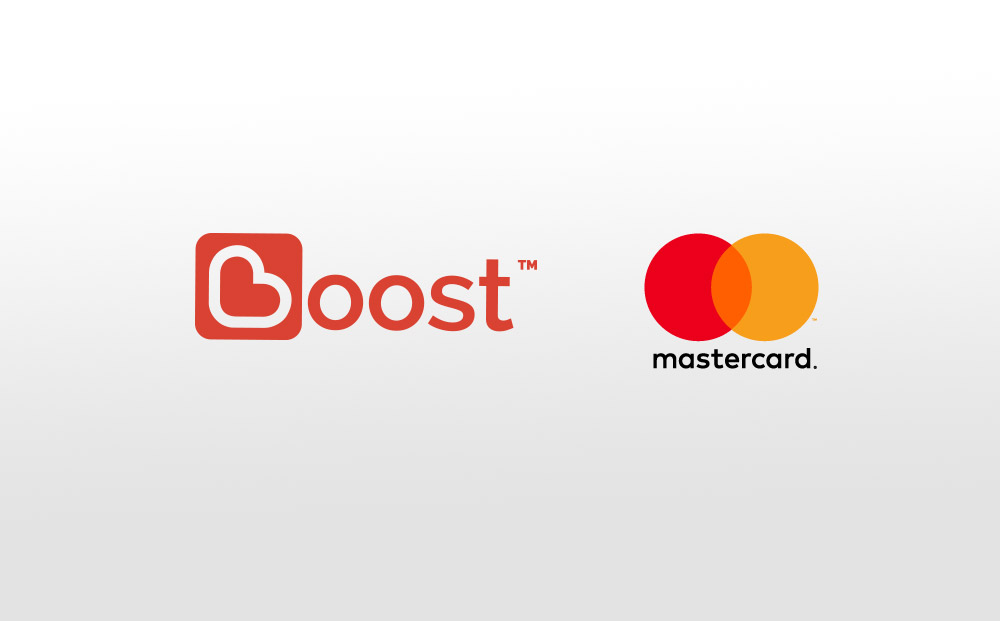Economy
Startups Are Attracting More Customers With Easy Cashless Payment Options

A whopping 84% of consumers globally now consider speed and convenience as the top reasons for choosing a payment method.
The use of cash for transactions has been steadily declining worldwide. According to PwC’s report, global cashless payment volumes are projected to increase by over 80% from 2020 to 2025, reaching nearly 1.9 trillion transactions.
Nowadays, offering easy cashless payment options is no longer a perk but a necessity for startups. It allows them to cater to a tech-savvy customer base and stay competitive in the market.
Therefore, easy cashless payment options are becoming a key factor for startups to attract more customers and ensure their success in the digital age.
The Adoption of Cashless Payments
The growing popularity of cashless payments can be attributed to several key factors, and considering these factors is important for any startup that wants to focus on customer experience.
The first factor is convenience. Cashless payments offer a faster and more convenient checkout experience. With the tap of a phone or a few clicks online, customers can complete transactions without the hassle of carrying cash or fumbling with change.
The second one is security. Many cashless payment methods, like digital wallets, come with proper security features like encryption and two-factor authentication, which can be more secure than carrying physical cash.
The third factor is all about speed. Cashless transactions are significantly faster than cash transactions, particularly for small purchases. This means shorter queues and a more efficient shopping experience for both customers and businesses.
The fourth one is to promote digitalization. The increasing popularity of online shopping and e-commerce platforms has significantly contributed to the shift towards cashless payments. Cashless options are the natural payment method for these digital transactions.
The Market Size And Growth Of Cashless Payments
The global cashless payment market is experiencing phenomenal growth. According to a report by Mordor Intelligence, the market was valued at USD 6.68 trillion in 2022 and is expected to reach a staggering USD 23.39 trillion by 2027, growing at a CAGR (Compound Annual Growth Rate) of 23.4%.
The Impact of Covid-19
The COVID-19 pandemic acted as a major catalyst for the adoption of cashless payments. Concerns about physical contact and the spread of germs through cash handling led to a surge in the use of contactless payment methods like mobile wallets and digital payments. This shift in consumer behavior is expected to have a long-lasting impact on the future of payments.
Why Easy Cashless Payments Matter for Startups?
Today’s startups know that offering easy cashless payment options is no longer a luxury for startups; it’s imperative for businesses.
Millennials and Gen Z, the largest and most tech-savvy consumer demographics, overwhelmingly prefer cashless transactions. Studies show that 67% of Millennials and 44% of Gen Z prefer to use mobile wallets for in-store payments. By offering easy cashless options like Apple Pay, Google Pay, and other digital wallets, startups can tap into this vast and growing market segment.
Cashless payments simplify the checkout process, leading to a faster and more convenient customer experience. Customers can complete transactions in seconds, eliminating long lines and the hassle of carrying cash. This translates to increased customer satisfaction and loyalty, which are crucial for any startup’s success.
Studies by Baymard Institute show that a staggering 70.19%% of online shopping carts are abandoned before checkout. One of the main reasons for cart abandonment is a cumbersome or confusing checkout process. By offering easy cashless options, startups can reduce cart abandonment rates and ensure a smoother checkout experience, which ultimately leads to increased sales and revenue.
Cashless payments allow for automated and streamlined financial processes. Startups can say goodbye to manual cash handling and reconciliation, reducing errors and saving valuable time and resources.
Additionally, cashless transactions provide real-time data and insights into customer spending habits, allowing startups to make data-driven decisions and optimize their business strategies.
How Startups Can Use Easy Cashless Payment Options?
In the competitive world of startups, offering a seamless and convenient payment experience is crucial to attracting and retaining customers.
Popular Digital Wallets
Millennials and Gen Z are driving the mobile wallet revolution. Integrating popular digital wallets like Apple Pay, Google Pay, and Samsung Pay into your payment system is essential. These solutions offer a fast, secure, and contactless way for customers to pay, significantly enhancing their checkout experience.
Diverse Payment Preferences
While digital wallets are gaining traction, it’s important to offer a variety of cashless payment methods to cater to a wider customer base. This may include traditional options like credit cards, debit cards, and net banking.
Additionally, consider offering regional payment solutions that are popular in your target market to ensure maximum customer convenience.
Secure Payment Gateways
Security is paramount when dealing with financial transactions. Partnering with a reliable and secure payment gateway is essential for protecting customer data and ensuring smooth transaction processing. Look for a gateway that offers features like fraud detection, encryption, and compliance with industry security standards like PCI DSS.
Transparency is Key
Customers appreciate clarity and ease when making purchases. Make sure your website or app clearly displays all accepted payment methods with logos and any associated fees.
Additionally, provides a secure and transparent checkout process that guides customers through each step without confusion.
By implementing these strategies, startups can leverage the power of easy cashless payments to attract new customers, boost sales, and gain a competitive edge in the market.
Summing Up
As contactless payments and even cryptocurrency gain traction, staying ahead of the curve in cashless solutions is crucial. If you are interested in crypto payment then you need to stay in touch with the market using tools like everix Peak. By embracing these trends and prioritizing a seamless customer experience, startups can unlock a world of opportunity, attracting new customers, boosting sales, and establishing a strong competitive advantage in the ever-evolving marketplace.
Economy
Dangote Refinery Shares to be Available to Public in Five Months

By Adedapo Adesanya
The chairman of Dangote Group, Mr Aliko Dangote, has said that within the next five months, Nigerians should be able to purchase shares of Dangote Petroleum and Refinery.
Mr Dangote made this revelation on Sunday during a tour of the facility by the chief executive of the Nigerian National Petroleum Company (NNPC) Limited, Mr Bayo Ojulari, alongside members of the company’s executive management.
The $20 billion refinery is the largest single-train refinery in the world with 650,000 barrels per day refining capacity. There are efforts to boost the capacity to 1.4 million barrels per day soon.
Speaking with journalists, Mr Dangote said, “And the other issue is that they (NNPC) are holding 7.25 per cent of the shares that we have here, which is more than the shares Elon Musk has in Tesla. And they are holding that on behalf of Nigerians,” he said.
“So individually, Nigerians too will have an opportunity in the next, maybe a maximum of four to five months. There will actually be an opportunity to buy the shares.”
He added that shareholders will have the option to receive their dividends in either naira or dollars, as the refinery also earns in dollars.
Commenting on Mr Ojulari’s visit, the billionaire businessman said the NNPC, represented by Mr Ojulari and its management team, was not just a guest but a shareholder.
“Today is really our best day ever” at the facility. I know NNPC invested in us when we were not really sure whether the refinery would be successful.
“So that’s the kind of level of confidence. But right now, the relationship with the new set of people that we have at NNPC, I think the sky is the limit, and we will cooperate and also make sure that we work together to make sure that we make Nigerians proud.”
Speaking on prospects of partnership with NNPC in the upstream sector, he said, “We have block 71, 72, but we’re going to look much deeper”.
“Most likely, depending on our own discussions with them, we will partner with them, maybe in some of the upstream. They, too, will partner with us here because here is not just a refinery, it’s an industrial hub.
“And that’s why we’re doing linear alkaline benzene, which is a raw material for detergents, ” he added.
Economy
NGX Investigates Zichis Stocks After 859% Rise in One Month

By Aduragbemi Omiyale
The Nigerian Exchange (NGX) Limited has launched an investigation into trading activities on the shares of Zichis Agro-Allied Industries Plc.
A notice from Customs Street on Monday disclosed that this has led to the suspension of the company for now.
This development comes about a month after Zichis was listed on the domestic bourse and placed in the growth board of the NGX.
In the circular, it was disclosed that the suspension may be lifted after the conclusion of the findings, but for now, investors will not be able to trade the organisation’s securities on the NGX platform.
“The suspension of trading in Zichis shares shall be lifted upon the conclusion of an investigation into the trading activities on the company’s shares,” a part of the disclosure stated.
The bourse explained that it wielded the big stick on Zichis in compliance with Rule 7.0, Rules on Suspension of Trading in Listed Securities, Rulebook of The Exchange (Issuers’ Rules).
This part of the law states that, “Notwithstanding any of the foregoing provisions, the exchange may, in accordance with any of its rules, place the trading of any security on suspension.
“It may also do so if it is of the view that such suspension will be in the interest of the investing public and in accordance with the SEC Rules.”
In announcing the action on the firm, the NGX declared that, “The shares of Zichis Agro-Allied Industries Plc have been suspended from trading on the facilities of Nigerian Exchange Limited (NGX), effective today, Monday, February 23, 2026.”
Business Post reports that last week, shares of Zichis appreciated by 60.74 per cent to N17.36. It joined the stock exchange at N1.81, indicating it has gained N15.55 or 859.12 per cent in one month.
Economy
Nigeria Investment Fund, Japan Unveil $50m Innovation Fund for Startups

By Adedapo Adesanya
The Nigeria Investment Authority (NSIA) and Japan International Cooperation Agency (JICA) have finalised agreements to launch a $50 Sovereignmillion impact innovation fund aimed at strengthening the Nigerian start-up ecosystem.
The fund is expected to provide patient capital to pre-seed, seed, and early-stage startups addressing critical social challenges in sectors such as agriculture, healthcare, education, energy, waste and water management.
JICA will provide $14 million in grant support, while NSIA contributes up to $20 million to match the grant.
Structured as an onshore public fund, the initiative combines financial support with technical assistance to help startups refine products, scale operations, and expand into new markets.
The fund is expected to create jobs, improve livelihoods, and contribute to sustainable economic development across Nigeria.
Speaking at the agreement signing ceremony between NSIA and JICA at the Ministry of Budget and Economic Planning, Mr Aminu Umar-Sadiq, the chief executive of NSIA, said: “The Fund represents a transformative step for Nigeria’s startup ecosystem. By providing early-stage ventures in high-impact sectors with the capital and support they need to grow, we are enabling innovators to tackle some of Nigeria’s most pressing challenges. Our collaboration with JICA underscores our commitment to entrepreneurship, inclusive growth, and sustainable development.”
Preparations are underway to operationalise the Fund and develop a pipeline of high-impact startups ready for investment. NSIA remains committed to advancing socio-economic development through strategic partnerships that scale impact, expand innovative solutions, and unlock access to capital.
On his part, the Japanese Ambassador to Nigeria, Mr Suzuki Hideo, said, “The Government of Japan hopes this new project will take root in Nigeria and bear fruit swiftly.”
-

 Feature/OPED6 years ago
Feature/OPED6 years agoDavos was Different this year
-
Travel/Tourism10 years ago
Lagos Seals Western Lodge Hotel In Ikorodu
-

 Showbiz3 years ago
Showbiz3 years agoEstranged Lover Releases Videos of Empress Njamah Bathing
-

 Banking8 years ago
Banking8 years agoSort Codes of GTBank Branches in Nigeria
-

 Economy3 years ago
Economy3 years agoSubsidy Removal: CNG at N130 Per Litre Cheaper Than Petrol—IPMAN
-

 Banking3 years ago
Banking3 years agoSort Codes of UBA Branches in Nigeria
-

 Banking3 years ago
Banking3 years agoFirst Bank Announces Planned Downtime
-

 Sports3 years ago
Sports3 years agoHighest Paid Nigerian Footballer – How Much Do Nigerian Footballers Earn



















